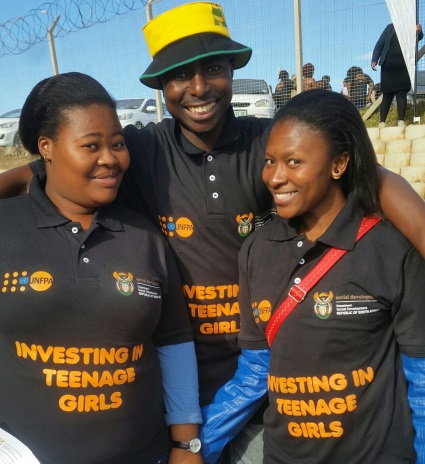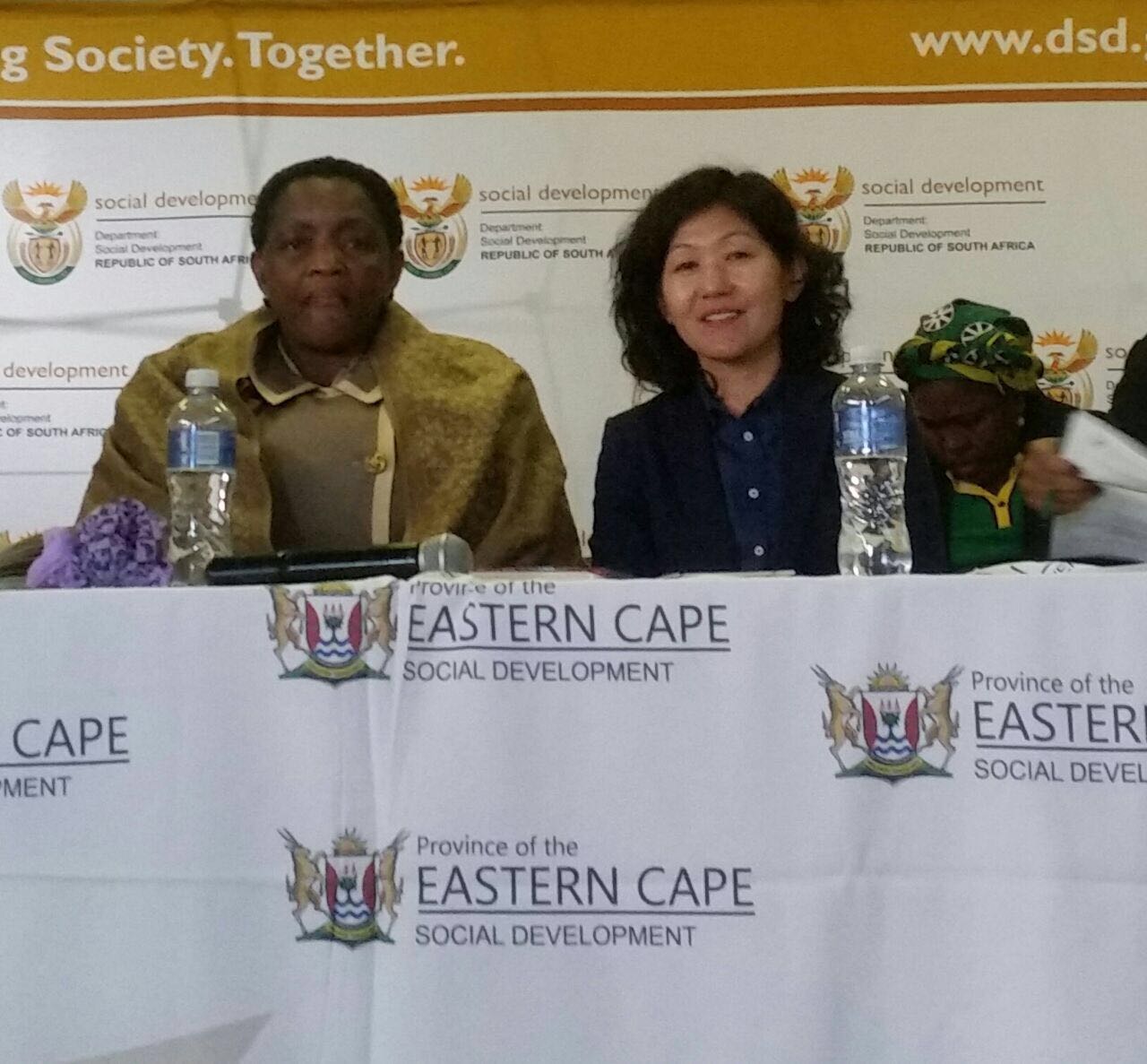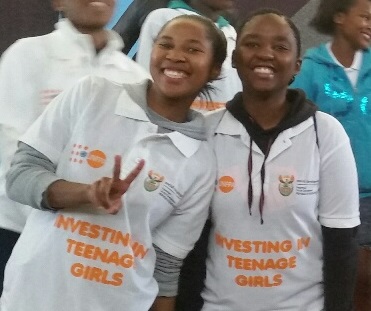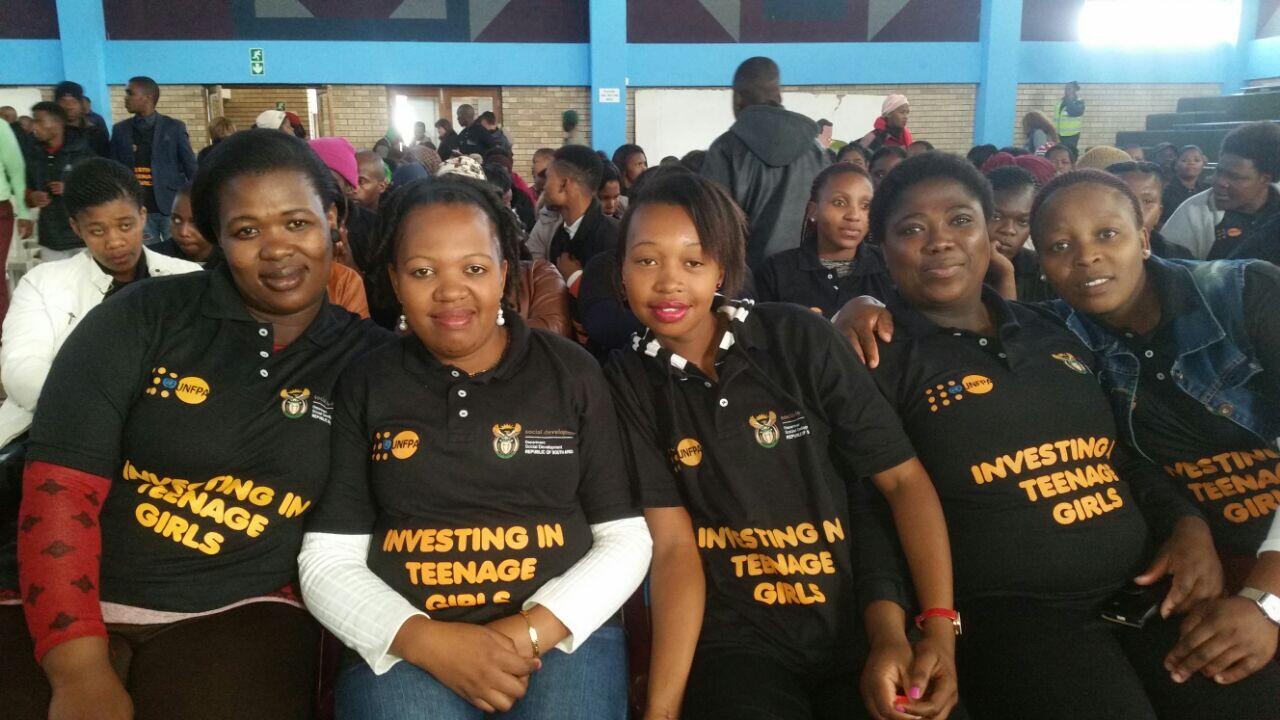Commemoration of World PopulationDay, Youth Month and the International Nelson Mandela Day celebrations under the theme:
“Moving South African youth forward by investing in teenage girls”
The Department of Social Development commemorated the 2016 World Population Day (WPD) with participation of more than 800 young people at George Botha Community Centre in KwaNoxolo, outside Port Elizabeth on 22 July 2016.
The WPD is commemorated every year as a way to focus attention on critical population issues. This year, 2016, the focus is on investing in teenage girls. ‘The power of tomorrow rests in the hands of an informed and educated youth,’ Mr Jacques van Zuydam, Chief Director: Population and Development, emphasised as he explained to the audience of almost 800 young people the significance of having a day set aside to examine population issues.

The Department of Social Development hosted a youth dialogue at the George Botha Community Hall in KwaNoxolo, outside Port Elizabeth to engage with youth on issues affecting their community. Youth Dialogues are crucial in unpacking how youth feel about unique and complex issues affecting them within their communities. Honourable Minister Bathabile Dlamini had requested an opportunity to engage with youth to empower them to become 'agents of change' to shape their surroundings into a better tomorrow. ‘It is the collective responsibility of society to ensure that the girl child's values are enshrined.’
Considering the challenges that face young people, including teen pregnancy, high HIV infection rates, unemployment and gender based violence, a committed collective response is required, a response that goes beyond Government and includes civil society, NGOs, academic institutions, traditional and religious leadership and most importantly adolescents and young people themselves. A multisectoral response is needed, from all sectors. Educated and healthy girls stay in school longer, marry later, delay childbearing, have healthier children, develop life skills, and earn higher incomes. They can help lift themselves and their present and future families out of poverty.
The Department of Social Development has conducted some important research on ‘Factors Associated with Teenage Pregnancy’, and Ms Nondumiso Gwarube, Deputy Manager: Advocacy and IEC in the Eastern Cape Department of Social Development presented the findings for the Eastern Cape. She emphasised that access to information is critical to reduce the burden of teenage pregnancy and the spread of HIV among the youth.
Mr Vusimuzi Makinana from the National Youth Development Agency spoke about ‘Investing in Young People’, and emphasised that one of the greatest investments we can make in our youth is not money, but time. Youth need to be groomed into becoming active citizens.

Mr. Ndzuzo Mlandu (Partners in Sexual Health) introduced the Siyakwazi Youth Network, which is a collaboration between Partners in Sexual Health, NYDA, IPPF and the Department of Social Development. The aim of the Network is to create a social media platform for dialogue by young people on Sexual and Reproductive Health and Rights (SRH&R) in order to increase their understanding end empower them to engage in advocacy.

Ms Navchaa Suren, Deputy Representative of UNFPA South Africa, delivered a message of support and re-emphasised the importance of investing in teenage girls, especially considering the fact that there are still around 2000 new HIV infections every week. S She called for continued investment in young people and reconfirmed the UNFPA’s commitment to support government.
Cllr Sibeko, representing the Mayor of Nelson Mandela Bay, encouraged the young people not to forget the role of the youth in the past, and called on young people to take charge of their lives, and their destinies.
This event in KwaNoxolo was significant in that it demonstrated a very real commitment from government to interact with young people – ‘nothing about the youth without the youth’ – and the packed hall of vibrant and engaged young people was a statement of what can happen when we invest in the education and empowerment of young people.


